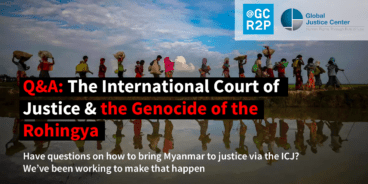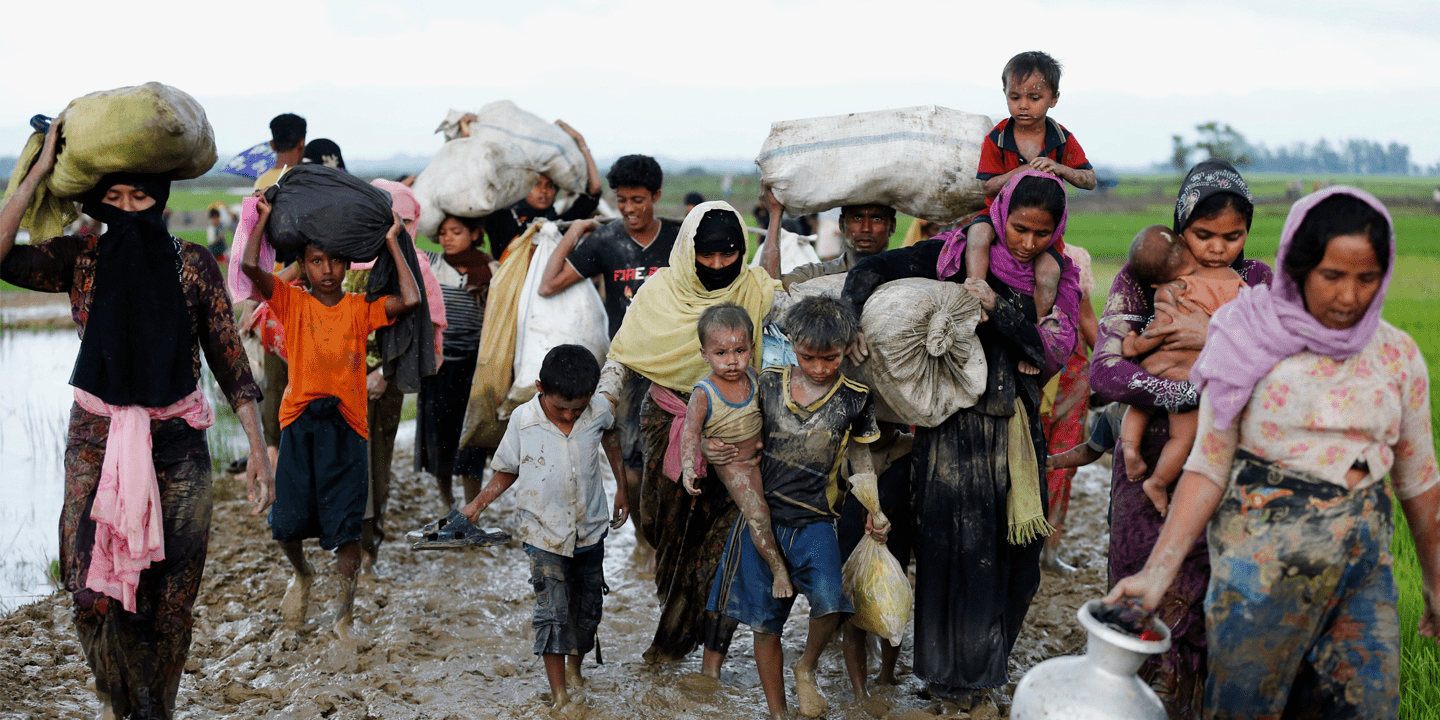

Atrocity Alert No. 164: Myanmar (Burma), Afghanistan and Syria
Atrocity Alert is a weekly publication by the Global Centre for the Responsibility to Protect highlighting situations where populations are at risk of, or are enduring, mass atrocity crimes.
Internet shutdown in Myanmar will not shield military from scrutiny and sanctions
As the internet shutdown in parts of Myanmar’s Rakhine and Chin states entered its fifth week, hundreds of thousands of civilians are at risk due to a lack of information about devastating flooding in the region as well as ongoing fighting between the security forces and the ethnic armed group, the Arakan Army (AA). Myanmar’s government ordered the shutdown on 21 June, citing the need to curtail “illegal activities.” On 24 June the UN Special Rapporteur on the situation of human rights in Myanmar, Yanghee Lee, expressed fear for civilians “cut off and without the necessary means to communicate with people inside and outside the area.”
The AA, who are seeking greater autonomy for the ethnic Rakhine Buddhist population, have been fighting with the security forces since November 2018, displacing an estimated 35,000 people. Many of the military units fighting the AA have been implicated in past atrocities, including crimes against humanity and genocide perpetrated against the Rohingya minority during so-called “clearance operations” in Rakhine State during late 2017.
Last week, on 16 July, the United States government became the first country to sanction Myanmar’s Commander-in-Chief Min Aung Hlaing and three other senior military officials for “gross human rights violations” perpetrated against the Rohingya. The sanctioned officials and their families are now banned from entering the United States. Last August the US also sanctioned four military and police commanders and two military units for their involvement in atrocities perpetrated in Rakhine, Kachin and Shan states. While announcing the new sanctions, Secretary of State Mike Pompeo also condemned the early release of seven soldiers convicted for a 2017 massacre of Rohingya civilians in Inn Din village.
Other states should similarly sanction Commander-in-Chief Min Aung Hlaing and other senior commanders whom the UN Fact Finding Mission found were responsible for widespread atrocities committed in Rakhine State in late 2017. The UN Security Council should immediately refer the situation in Myanmar to the International Criminal Court. Myanmar should also be taken to the International Court of Justice for breaching its obligations under the Genocide Convention.
Talking peace while waging war on civilians in Afghanistan
The United States Special Representative to Afghanistan, Zalmay Khalilzad, is scheduled to travel to Afghanistan and Qatar next week as part of ongoing efforts to negotiate an end to the country’s nearly 18-year war with the Taliban. The visit comes almost three weeks after the conclusion of the last round of talks between the United States and the Taliban, as well as the Intra-Afghan Dialogue, both of which were recently held in Doha. Despite all parties to the conflict pledging to commit to a “roadmap for peace,” attacks on civilians and civilian infrastructure intensified throughout July.
Since 1 July the Taliban have claimed responsibility for several car bombings on military and police targets that also killed or wounded hundreds of civilians. The Taliban detonated a car bomb outside a defense ministry building in Kabul on 1 July, killing at least 35 people. The explosion damaged a school and other civilian infrastructure, seriously wounding many children. On 7 July Taliban fighters killed at least six civilians when they targeted the National Directorate of Security in Ghazni with a car bomb. According to health officials, at least 60 children in a nearby school were also injured. And last week, on 18 July, the Taliban also detonated a car bomb at police headquarters in Kandahar, killing nine civilians.
Other parties to the conflict have also been implicated in recent attacks on civilians, including a 22 July airstrike by government forces that killed seven civilians. At least eight people were also killed in a bombing outside Kabul University on 19 July. No group has claimed responsibility, but the attack prompted the UN Assistance Mission in Afghanistan to stress that “indiscriminate blasts in civilian areas must stop.”
If parties to the conflict, including the Taliban, do not end attacks on civilians, then any outcome of negotiations will lack credibility with the millions of Afghanis whose security and welfare depend upon a sustainable peace. In order to achieve genuine progress, all parties to the conflict must meaningfully reduce civilian casualties and consistently uphold International Humanitarian Law.
Another deadly week in Idlib
At least 39 civilians were killed at a vegetable market in the city of Maarat al-Numan, Syria, on Monday, 22 July. The market was allegedly hit by Russian airstrikes, although the Russian government denies this. According to the UN, at least 20 civilians were also killed by airstrikes in other parts of Idlib Governorate, marking one of the deadliest days since government and Russian forces escalated their offensive on the region on 29 April. The UN claims that more than 330,000 people have been displaced and 400 killed since the end of April, while the Syrian Observatory for Human Rights has reported that more than 700 civilians have been killed.
The Idlib offensive has been characterized by the deliberate targeting of civilian-populated areas, including the use of illegal cluster munitions, barrel bombs and incendiary weapons. The armed extremist group Hayat Tahrir al-Sham, which controls most of Idlib, also continues to indiscriminately fire rockets towards government-held areas of nearby Aleppo and Hama.
Urging the UN Security Council to take action, on 18 July the UN Under-Secretary-General for Humanitarian Affairs, Mark Lowcock, said that “Since 1 July at least six health facilities, five schools, three water stations, two bakeries, and one ambulance have been damaged or destroyed… The carnage must stop.” Deliberate attacks on civilians and civilian infrastructure, including medical facilities, violate International Humanitarian Law and may constitute war crimes and crimes against humanity.
The international community must act now to protect the lives of the millions of civilians living in Idlib governorate. Syrian government forces and their Russian allies, as well as Hayat Tahrir al-Sham and all other armed groups, should all commit to an immediate ceasefire and the full implementation of the September 2018 demilitarized zone agreement.
Read Next

Related Publications

Atrocity Alert No. 445: Sudan, Syria and Eritrea

11th Meeting of the Global Network of R2P Focal Points Outcome Document
